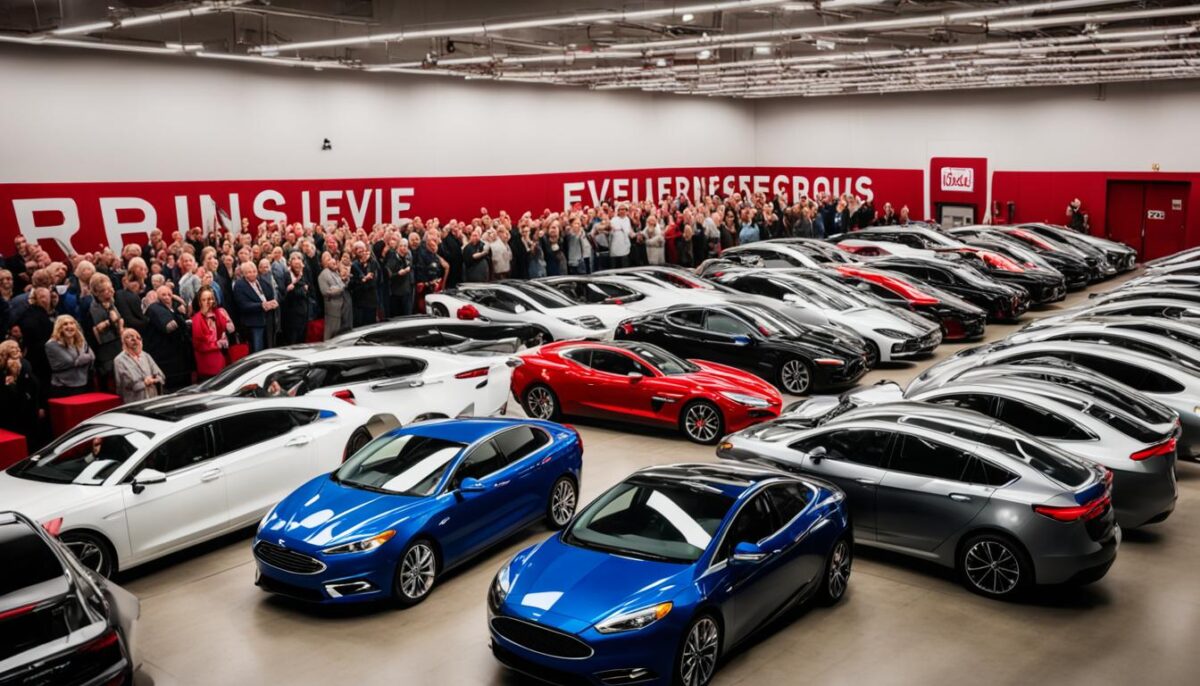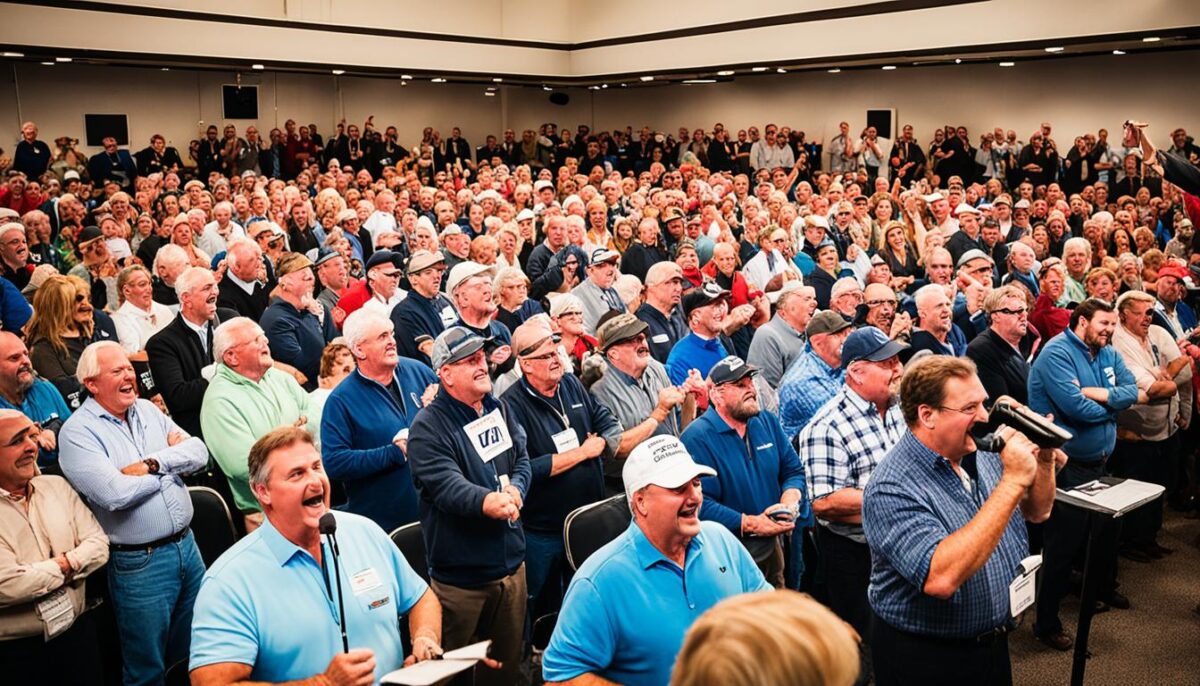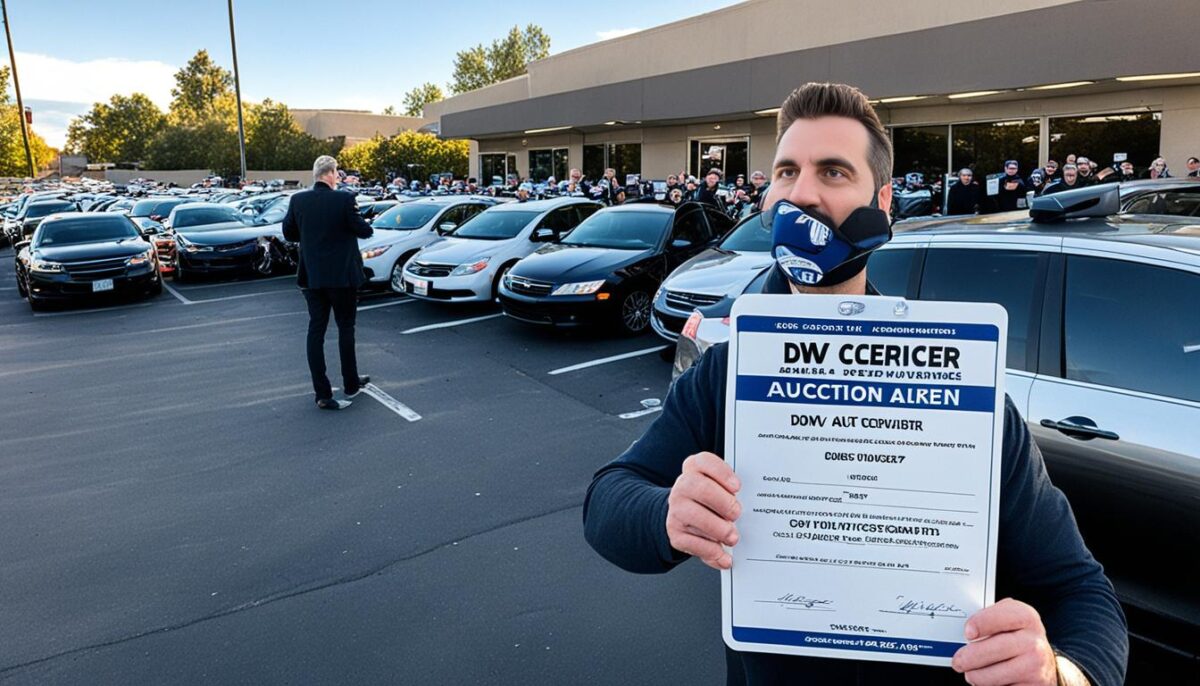In the exciting world of car auctions, the term “no reserve” holds significant weight. When a car is offered at a “no reserve” auction, it means that the seller has agreed to sell the vehicle to the highest bidder, regardless of the final bid amount. This is a stark contrast to a “reserve” auction, where the seller has set a minimum price they are willing to accept.
Understanding the implications of a “no reserve” auction is crucial for both buyers and sellers. As car enthusiasts and auction aficionados, we’ll dive into the details of what a “no reserve” auction entails and explore the potential benefits it can offer. By the end of this article, you’ll have a deeper understanding of how these unique auctions work and how to leverage them to your advantage.
Understanding the Significance of “No Reserve” at Car Auctions
In the captivating world of car auctions, the term “no reserve” holds immense significance. A “no reserve” auction is a unique type of sale where the seller has agreed to let the highest bidder take home the vehicle, no matter the final bid price. This means there is no minimum price set by the seller, and the car will be sold to the highest bidder, even if the final offer is lower than the seller’s initial expectations.
What is a “No Reserve” Auction?
A “no reserve” car auction is a sale where the seller has relinquished control over the minimum price they’re willing to accept. Unlike traditional auctions, where the seller can set a reserve price, a “no reserve” auction allows the market to determine the final selling price. This creates an exciting and dynamic atmosphere, as bidders compete to secure the best deal on the vehicle they desire.
Benefits of Attending a “No Reserve” Car Auction
- Opportunity for Exceptional Deals: With no minimum price, buyers have the chance to find exceptional deals on high-quality vehicles, sometimes even below the market value.
- Transparent Pricing: The selling price is determined solely by the bidding process, providing a transparent and unbiased valuation of the vehicle.
- Excitement and Competition: The thrill of a “no reserve” auction adds an element of excitement, as buyers compete to outbid one another, creating a lively and engaging atmosphere.
- Access to Diverse Inventory: “No reserve” auctions often feature a wide range of vehicles, from classic cars to late-model luxury vehicles, giving buyers a diverse selection to choose from.
Attending a “no reserve” car auction can be a rewarding experience for savvy buyers who are willing to do their research and navigate the competitive bidding process. By understanding the benefits and dynamics of these unique sales, buyers can increase their chances of securing their dream car at a price that fits their budget.

What “No Reserve” Mean Car Auction
When it comes to car auctions, the term “no reserve” holds significant importance for both buyers and sellers. Simply put, a “no reserve” auction means that the seller has agreed to sell the vehicle to the highest bidder, regardless of the final bid price. This is in contrast to a “reserve” auction, where the seller has set a minimum price they are willing to accept for the vehicle.
The concept of “no reserve” auctions is crucial for understanding how these events work and the advantages they offer to attendees. Let’s delve deeper into the world of “no reserve” car auctions and explore how they differ from their “reserve” counterparts.
How “No Reserve” Auctions Work
At a “no reserve” car auction, the seller has made the decision to sell the vehicle to the highest bidder, even if the final bid is lower than they initially hoped for. This means that the vehicle will be sold, with the winning bid determining the final sale price.
- In a “no reserve” auction, the seller has no minimum price they must meet, and the vehicle will be sold to the highest bidder, regardless of the final bid amount.
- Buyers at a “no reserve” auction have the opportunity to potentially secure a great deal, as the seller is motivated to sell the vehicle and may accept a lower bid than they would in a “reserve” auction.
- The absence of a reserve price also creates a sense of excitement and competition among bidders, as they know the vehicle will be sold to the highest offer.
Benefits of Attending a “No Reserve” Car Auction
Attending a “no reserve” car auction can offer several advantages for buyers. One of the primary benefits is the potential to find great deals on vehicles.
- Competitive Pricing: Without a reserve price, sellers are motivated to accept the highest bid, which can lead to lower-than-expected sale prices for buyers.
- Variety of Vehicles: “No reserve” auctions often feature a diverse selection of vehicles, from classic cars to modern models, giving buyers more options to choose from.
- Transparency: The absence of a reserve price creates a transparent bidding process, where buyers can see the true market value of the vehicles being sold.
Whether you’re a seasoned car enthusiast or a first-time auction attendee, understanding the concept of “no reserve” can help you make informed decisions and potentially secure a great deal on your next vehicle purchase.
| Feature | “No Reserve” Auction | “Reserve” Auction |
|---|---|---|
| Minimum Bid | None | Set by Seller |
| Seller’s Motivation | Sell to Highest Bidder | Meet Minimum Price |
| Bidding Competition | Higher | Lower |
| Potential for Savings | Higher | Lower |
“In a ‘no reserve’ car auction, the excitement and thrill of the bidding process is amplified, as buyers know they have the chance to secure a truly great deal.”
Strategies for Bidding at a “No Reserve” Car Auction
When attending a “no reserve” car auction, it’s crucial for us as buyers to have a well-thought-out bidding strategy. Since there is no minimum price set by the seller, it’s essential to do our research and set a maximum bid that we’re comfortable with, based on the vehicle’s condition and market value.
One key tip is to thoroughly inspect the car beforehand and assess its true worth. This will help us determine a fair price range and avoid getting caught up in the excitement of the auction. Additionally, we should set a strict budget and stick to it, no matter how tempting it may be to keep bidding.
Another effective strategy is to start our bidding at a lower price point and gradually increase it, rather than jumping in with a high bid right away. This approach can help us secure a better deal, as the competition may not be as fierce at the lower end of the price range. Remember, patience and discipline are crucial when bidding at a “no reserve” car auction.



